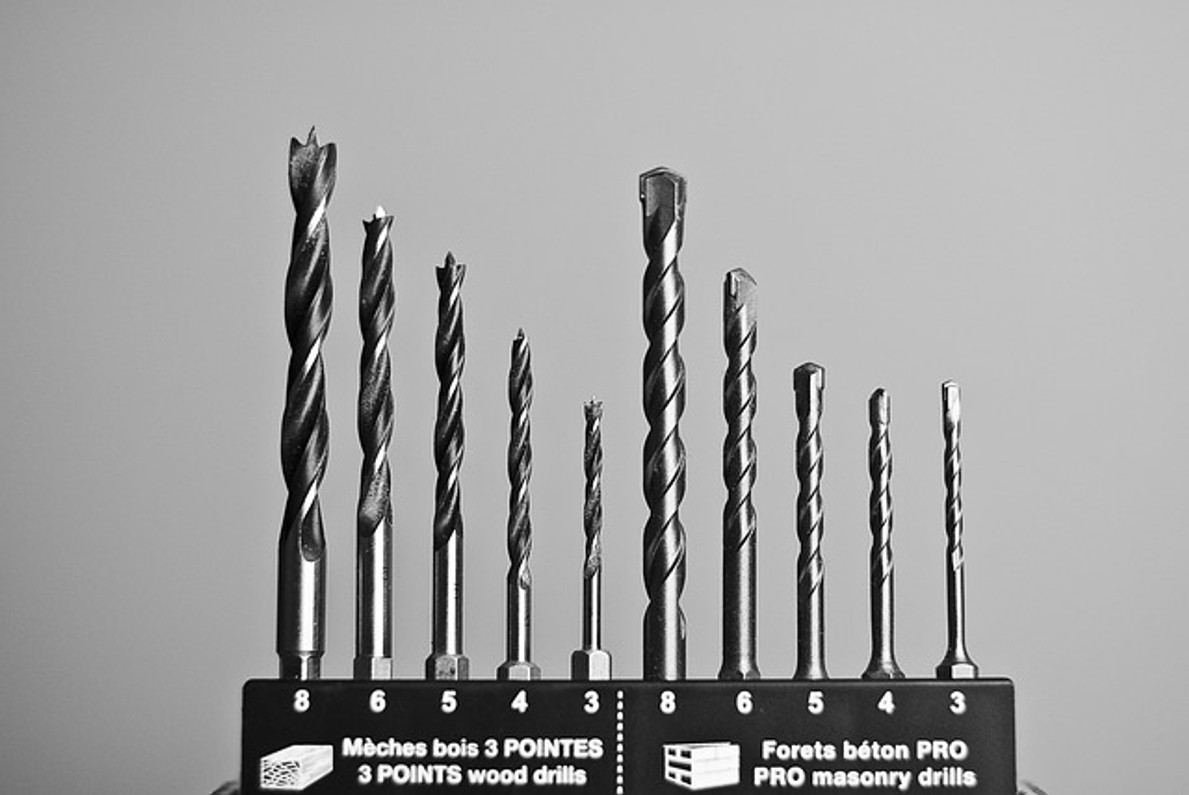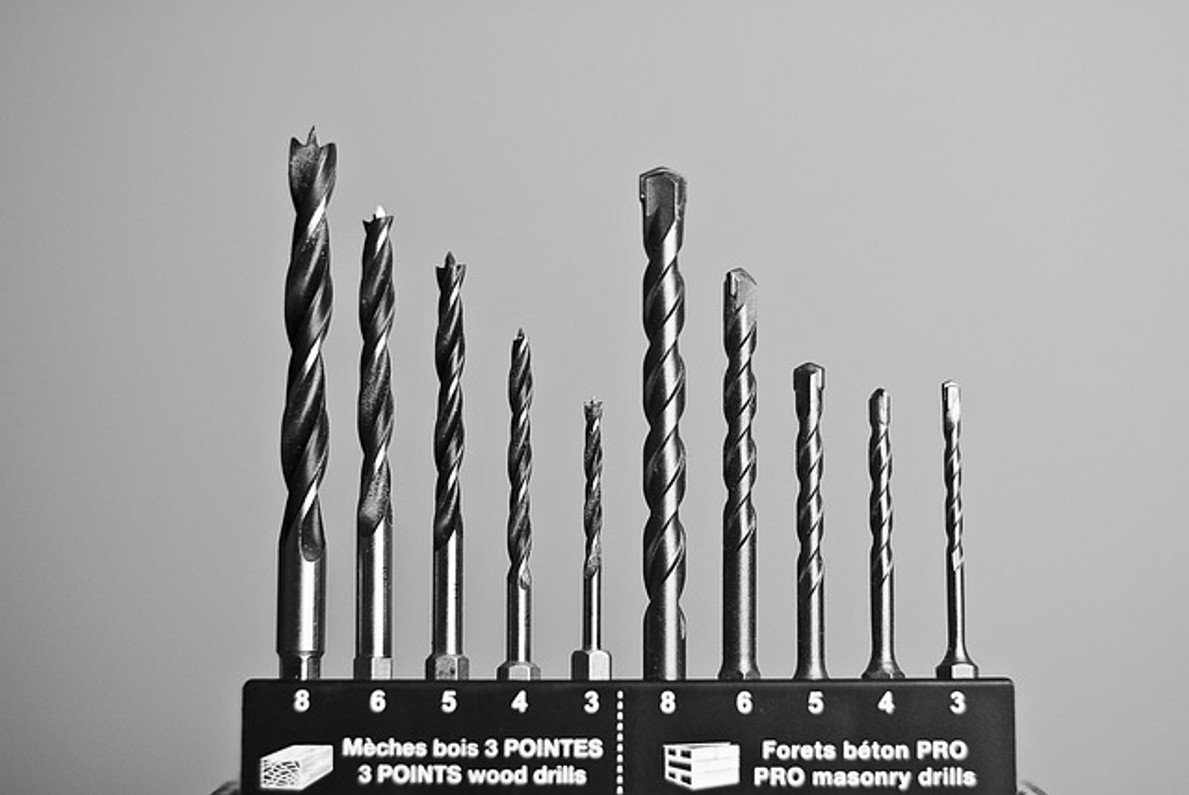Are you frustrated with your drill bits constantly breaking? Wondering why this keeps happening? Well, you’ve come to the right place! In this article, we’ll unravel the mystery behind why your drill bits seem to give way when you least expect it. So, let’s dive in and discover the reasons why your drill bits keep breaking!
Drilling into tough materials can be a real challenge, and when your drill bits keep snapping, it can be downright annoying. But fear not, we’re here to shed some light on this perplexing issue. We’ll explore the potential causes, from improper usage to low-quality bits, so you can take the necessary steps to prevent future breakages.
Picture this: you’re in the middle of a project, excited to see progress, when suddenly, your drill bit breaks! It can be disheartening, but don’t lose hope just yet. In this article, we’ll uncover the secrets behind why drill bits break and provide you with practical solutions to avoid this headache. So, let’s get started and equip you with the knowledge you need to keep those drill bits intact!
Are your drill bits constantly breaking? Discover common reasons behind this frustrating issue. Understanding these factors will help you prevent future breakages and preserve the longevity of your drill bits. From improper usage techniques to low-quality materials, several factors can contribute to drill bit breakage. By addressing these issues and adopting proper drilling practices, you can ensure longer-lasting drill bits and more efficient DIY projects.

Why Do My Drill Bits Keep Breaking?
We’ve all been there. You’re in the middle of a project, drilling through a tough material, and suddenly your drill bit snaps. It can be frustrating and time-consuming to continually replace broken drill bits. But fear not, we’re here to help you understand why your drill bits are breaking and how to prevent it from happening in the future.
Common Causes of Drill Bit Breakage
1. Choosing the Wrong Drill Bit: One of the most common reasons for drill bit breakage is using the wrong type of bit for the material you’re drilling. Different drill bits are designed to handle different materials, such as wood, metal, or concrete. Using the wrong bit can cause excessive friction and heat, leading to breakage. Make sure to choose the appropriate drill bit for the material you’re working with.
2. Overly Aggressive Drilling: Another common culprit is drilling too aggressively. While it may be tempting to push the drill hard and make quick progress, this can put excessive strain on the bit, leading to breakage. Instead, take your time and apply firm, but not excessive, pressure. Let the drill do the work and allow the bit to remove material at its own pace.
3. Dull or Damaged Bits: Over time, drill bits can become dull or damaged, which can weaken their structure and make them more prone to breaking. It’s important to regularly inspect your bits for signs of wear and tear, such as chipped edges or loss of sharpness. If a bit is damaged or dull, replace it with a new one to prevent breakage.
Preventing Drill Bit Breakage
1. Use the Right Speed and Drill Settings: Different materials require different drilling speeds. Consult the manufacturer’s guidelines or do some research to determine the appropriate speed for the material you’re working with. Additionally, make sure your drill is set to the proper mode (e.g., drilling, driving, or hammer drilling) to avoid unnecessary strain on the bit.
2. Lubricate the Bit: Lubricating the drill bit can help reduce friction and heat, which can ultimately prevent breakage. For certain materials, such as metal and masonry, using a lubricant like cutting oil or water can make a significant difference. Apply the lubricant to the bit before drilling to ensure proper lubrication.
3. Take Breaks to Allow for Cooling: When drilling through tough materials, it’s important to give both the bit and the material time to cool down periodically. Take breaks during the drilling process to prevent overheating, which can weaken the bit and increase the risk of breakage.
Choosing the Right Drill Bit
Not all drill bits are created equal. There are various types of bits available, each designed for specific materials and applications. Here are a few examples:
1. Twist Bits:
- Best for drilling into wood and plastic
- Not suitable for drilling into metal or masonry
2. Masonry Bits:
- Designed for drilling into concrete, brick, and stone
- Have a carbide or diamond tip for increased durability
3. Brad Point Bits:
- Ideal for drilling clean and precise holes in wood
- Feature a sharp point for accurate placement
Proper Bit Maintenance
To extend the lifespan of your drill bits and prevent premature breakage, it’s crucial to take good care of them. Here are some tips for proper bit maintenance:
1. Clean After Use:
After each use, make sure to remove any debris or residue from the drill bit. This can be done by brushing or wiping them clean using a soft cloth or a brush specifically designed for drill bit cleaning.
2. Store Properly:
Keep your drill bits organized and stored in a dry, cool place. Consider using a designated drill bit case or holder to prevent damage or loss.
3. Sharpen When Needed:
If a drill bit becomes dull or loses its sharpness, you can sharpen it using a specialized drill bit sharpener or a bench grinder. Follow the manufacturer’s instructions and take care to maintain the correct angle while sharpening.
In conclusion, understanding the reasons behind drill bit breakage and implementing preventive measures can save you time and frustration. Remember to choose the right drill bit for the material, avoid overly aggressive drilling, regularly inspect and replace dull or damaged bits, and follow proper maintenance practices. By following these guidelines, you’ll significantly reduce the chances of your drill bits breaking and enjoy smooth, efficient drilling experiences.
Key Takeaways: Why Do My Drill Bits Keep Breaking?
- Use the right drill bit for the material you’re working with.
- Apply consistent pressure and avoid forcing the drill bit into the material.
- Keep your drill bits sharp by using a drill bit sharpener or replacing them when they become dull.
- Avoid overheating the drill bit by using lubrication or cooling techniques, especially when drilling metal.
- Check for defects or damage in your drill bits and replace them if necessary.
Frequently Asked Questions
Welcome to our FAQ section where we answer your burning questions about drill bits breaking. If you’ve been experiencing issues with your drill bits breaking too often, we’re here to help. Check out the answers to some common questions below:
1. What are some reasons why my drill bits keep breaking?
There could be a few reasons why your drill bits keep breaking. One common reason is that you might be using the wrong type of drill bit for the material you are drilling into. Each type of drill bit is designed for specific materials, like wood, metal, or concrete. Using the wrong drill bit can cause excessive friction, leading to breakage.
Another reason could be overloading the drill. If you put too much pressure or force on the drill while drilling, it can put excessive stress on the drill bit, causing it to break. Additionally, using dull or damaged drill bits can increase the chances of breakage. It’s important to regularly replace old or worn-out bits to ensure optimal performance.
2. How can I choose the right drill bit to prevent breakage?
To prevent drill bit breakage, it’s essential to choose the right drill bit for your specific drilling needs. Start by considering the material you’ll be drilling into. Different materials require different types of drill bits. For example, if you’re drilling into wood, a wood drill bit specifically designed for wood would be more suitable. Check the packaging or consult a hardware store expert to find the right drill bit for your project.
Investing in high-quality drill bits can also help prevent breakage. Look for drill bits made from durable materials such as cobalt or carbide. These types of bits are known for their strength and longevity. Additionally, practicing proper drilling techniques, such as using moderate pressure and speed, can reduce the risk of breakage.
3. Can drilling too fast cause drill bits to break?
Yes, drilling too fast can increase the likelihood of drill bit breakage. When drilling at a high speed, the drill bit can generate excessive heat due to friction, which can weaken the bit and cause it to snap. It’s important to maintain a moderate speed during drilling, allowing the bit to efficiently cut through the material without generating excessive heat.
Additionally, drilling too fast can lead to poor control over the drill, resulting in inaccurate holes or uneven drilling. Taking your time and drilling at a controlled speed will not only prevent breakage but also improve the overall quality of your drilling projects.
4. How can I prevent drill bits from overheating and breaking?
To prevent drill bits from overheating and breaking, it’s important to keep them cool during use. Applying cutting fluid or lubricant specific to the material you’re drilling can help reduce heat buildup and friction, extending the life of your drill bits. As you drill, periodically lift the bit out of the hole to allow it to cool down before continuing.
Another tip to prevent overheating is to use a drilling technique called “pecking.” This involves drilling in short, intermittent bursts, allowing the bit to cool in between. This technique is especially helpful when drilling into hard materials like metal or concrete. Remember, a cool and lubricated drill bit is less likely to break during use.
5. Are there any maintenance tips to extend the lifespan of my drill bits?
Absolutely! Proper maintenance can significantly extend the lifespan of your drill bits. After each use, it’s important to clean off any debris or residue from the bit. This can be done using a brush or compressed air. Storing your drill bits in a dry, organized container or case will also help protect them from damage and prolong their lifespan.
Regularly inspecting your drill bits for signs of wear or damage is crucial. If you notice any dullness, chips, or other signs of deterioration, it’s time to replace the bit. Blunt or damaged drill bits not only increase the risk of breakage but also deliver poor drilling performance. Lastly, remember to always use the appropriate drilling techniques, such as applying even pressure and avoiding excessive force, to keep your drill bits in optimal condition.

11 DRILLING TIPS AND TRICKS (And Mistakes To Avoid!)
Summary
If your drill bits keep breaking, there are a few things you can do to prevent it. First, make sure you’re using the right type of drill bit for the job. Second, check if the drill bit is dull or worn and replace it if necessary. Third, apply the right amount of pressure while drilling and avoid excessive force. Finally, take breaks during drilling to let the bit cool down and prevent overheating. By following these tips, you can keep your drill bits in good condition and avoid frequent breakages.
Remember to use the appropriate drill bit, replace dull bits, apply the right pressure, and take breaks to prevent drill bit breakages. Happy drilling!
